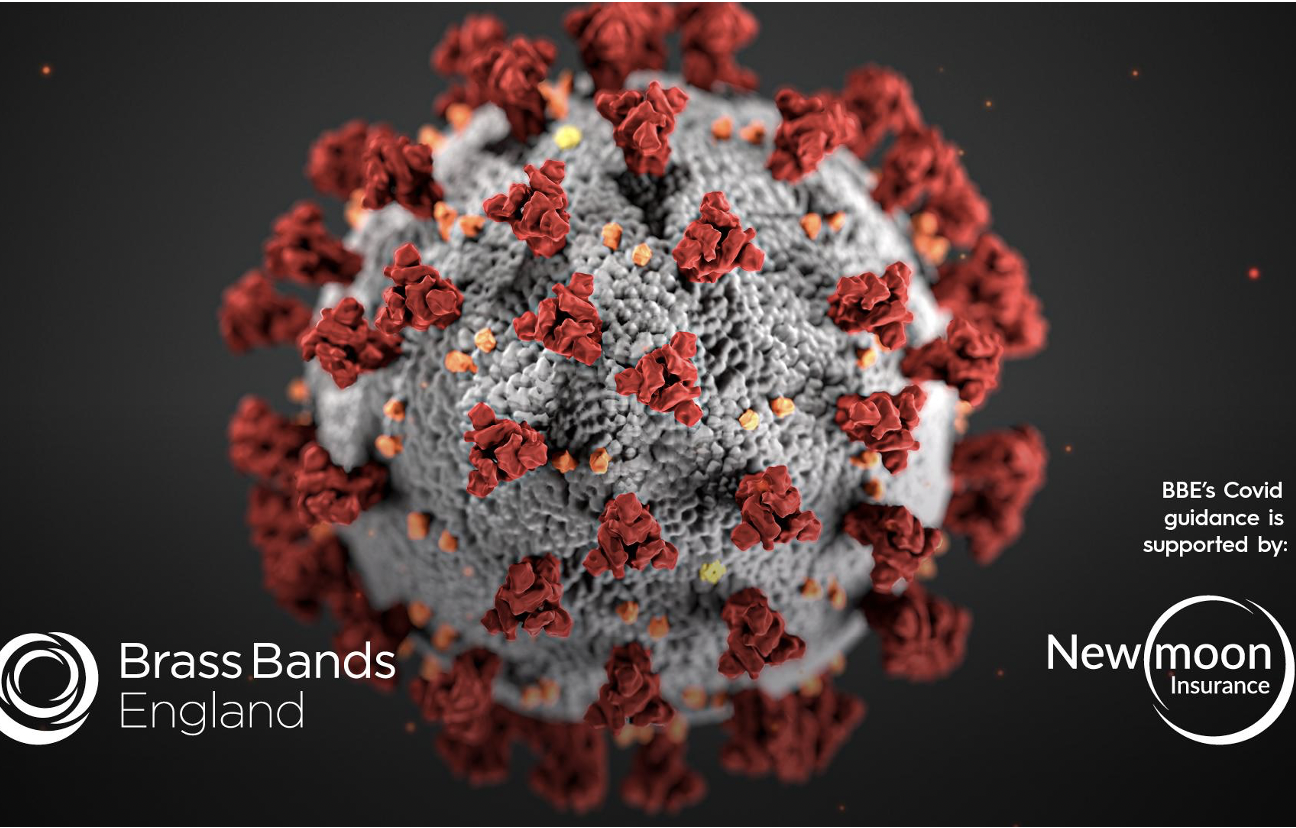Important new COVID-19 advice from BBE

Stage 4 of the Government’s recovery roadmap began on Monday 19 July. Despite the relaxations in specific COVID-19 mitigations, the legal requirement for bands to follow actions to minimise risks to members remains due to the pre-pandemic health and safety legislation. The Government has moved the onus onto each individual band to assess the risks of its activity and put measures in place to ensure the health, safety and wellbeing of members whilst they take part in the activity provided.
To support this, the Government has produced a new key guidance document Working safely during coronavirus (COVID-19): guidance from Step 4, which covers the activity of brass bands. It is important to understand that this guidance is designed to support the continuing legal obligations relating to health and safety of bands’ activities. The guidance contains non-statutory information that bands should take into account to ensure they can comply with these existing obligations and reduce the risk of COVID-19 transmission.
As soon as it is possible to do so, BBE will issue new risk assessments that bands may choose to utilise in their planning for ongoing activities. Whilst this is being produced and checked, the Working Safely Guidance details six priority actions to take to protect your participants, which are:
· Complete a health and safety risk assessment that includes risks from COVID-19. This should consider the points raised in the full guidance. BBE will issue an example of this that bands can modify for their own activities and help members understand the ongoing risks associated with that activity.
· Turn people with COVID-19 symptoms away. Participants should self-isolate if they or someone in their household has a new, persistent cough; a high temperature; or loses/experiences changes to their sense of taste or smell, even if these symptoms are mild. They must also self-isolate if they or someone in their household has had a positive COVID-19 result, or if they have been told to self-isolate by NHS Test and Trace.
· Increase ventilation as much as possible.
· Ensure that cleaning is carried out more often and that high contact areas are prioritised. You should ask participants to use hand sanitiser and clean their hands frequently, and provide them with advice to promote good hygiene.
· Enable people to check in at your venue. Whilst no longer a legal requirement, allowing people to check in with the Test and Trace app or collecting contact details will help Test and Trace to reduce the spread of the virus.
· Communicate and train all your participants on how you’re using and updating safety measures.
It is important that the full scope of the guidance is investigated and measures reviewed before bands make any changes to their provision. BBE will produce new risk assessments during the next week in order to support bands in taking in all the recommendations of the guidance.
BBE has discussed the requirements for bands with the Department for Digital, Culture, Media and Sport (DCMS), which has highlighted the following as advice made by the Government:
· Whilst the legal limits on the numbers, spacing and venue caps are removed, BBE recommends that bands continue to maintain spacing as far as is practical as reducing spacing will increase both the chance of spreading the virus and for members to be classed as close contacts. In addition to looking after the health it will reduce the chance that your members may have to isolate themselves after attending your rehearsals. This will also help bands to maintain activity by reducing the total numbers isolating at any one time.
· Whilst it will no longer be a legal requirement to wear a face covering, the Government expects and recommends that people wear face coverings in crowded and enclosed settings to protect themselves and others. BBE recommends that bands require members (unless medically exempt) to continue to wear masks wherever possible, including conductors and percussionists whilst playing.
· Testing, contact tracing and self-isolation will remain in place as key protections against the virus, including the need to self-isolate if you are a contact of someone who tests positive. That requirement will be lifted for double-vaccinated people and under-18s on 16 August. This supports BBE’s recommendation to maintain spacing in order to minimise the number of contacts anyone contracting the virus might make.
· Bands should use certification at venues and events, using the NHS COVID pass. This is not mandatory, but encouraged in large and crowded settings. The Government has also made clear that certification may become mandatory in future.
In addition, BBE will continue to make the following recommendations:
· Move activity outdoors wherever possible to ensure maximum ventilation.
· If indoors, ensure that all windows and doors remain open where possible and, where available, ventilation systems are used as effectively as possible.
BBE may make additional recommendations once the full implications of the new guidance are understood. This will be communicated at the same time as the new risk assessments. In the meantime, we urge all bands to continue to exercise caution as they change procedures and only make changes when the new BBE risk assessment is available or they have created their own risk assessment and ensured it is in line with the new guidance.





.gif)







